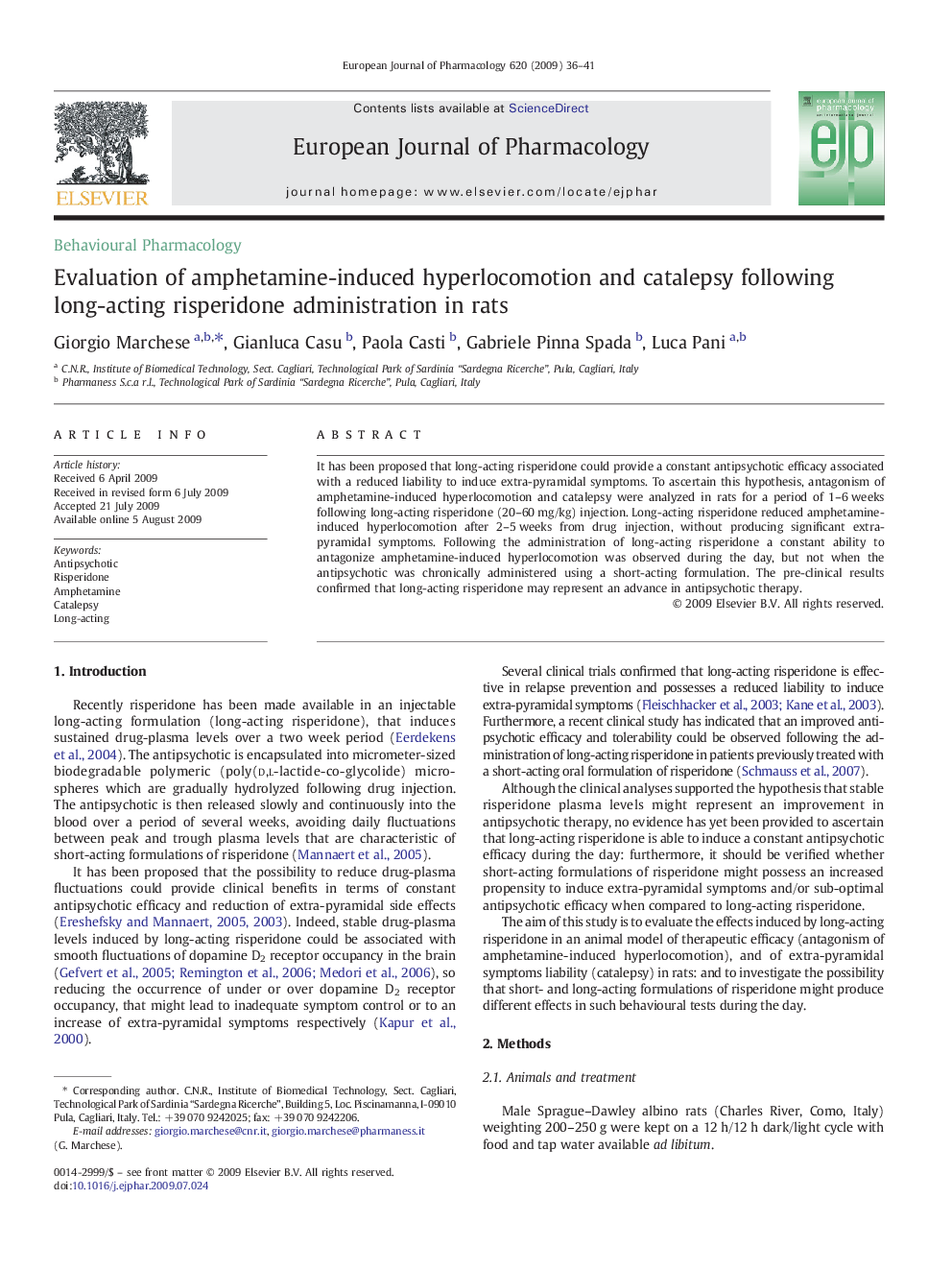| Article ID | Journal | Published Year | Pages | File Type |
|---|---|---|---|---|
| 2534044 | European Journal of Pharmacology | 2009 | 6 Pages |
It has been proposed that long-acting risperidone could provide a constant antipsychotic efficacy associated with a reduced liability to induce extra-pyramidal symptoms. To ascertain this hypothesis, antagonism of amphetamine-induced hyperlocomotion and catalepsy were analyzed in rats for a period of 1–6 weeks following long-acting risperidone (20–60 mg/kg) injection. Long-acting risperidone reduced amphetamine-induced hyperlocomotion after 2–5 weeks from drug injection, without producing significant extra-pyramidal symptoms. Following the administration of long-acting risperidone a constant ability to antagonize amphetamine-induced hyperlocomotion was observed during the day, but not when the antipsychotic was chronically administered using a short-acting formulation. The pre-clinical results confirmed that long-acting risperidone may represent an advance in antipsychotic therapy.
